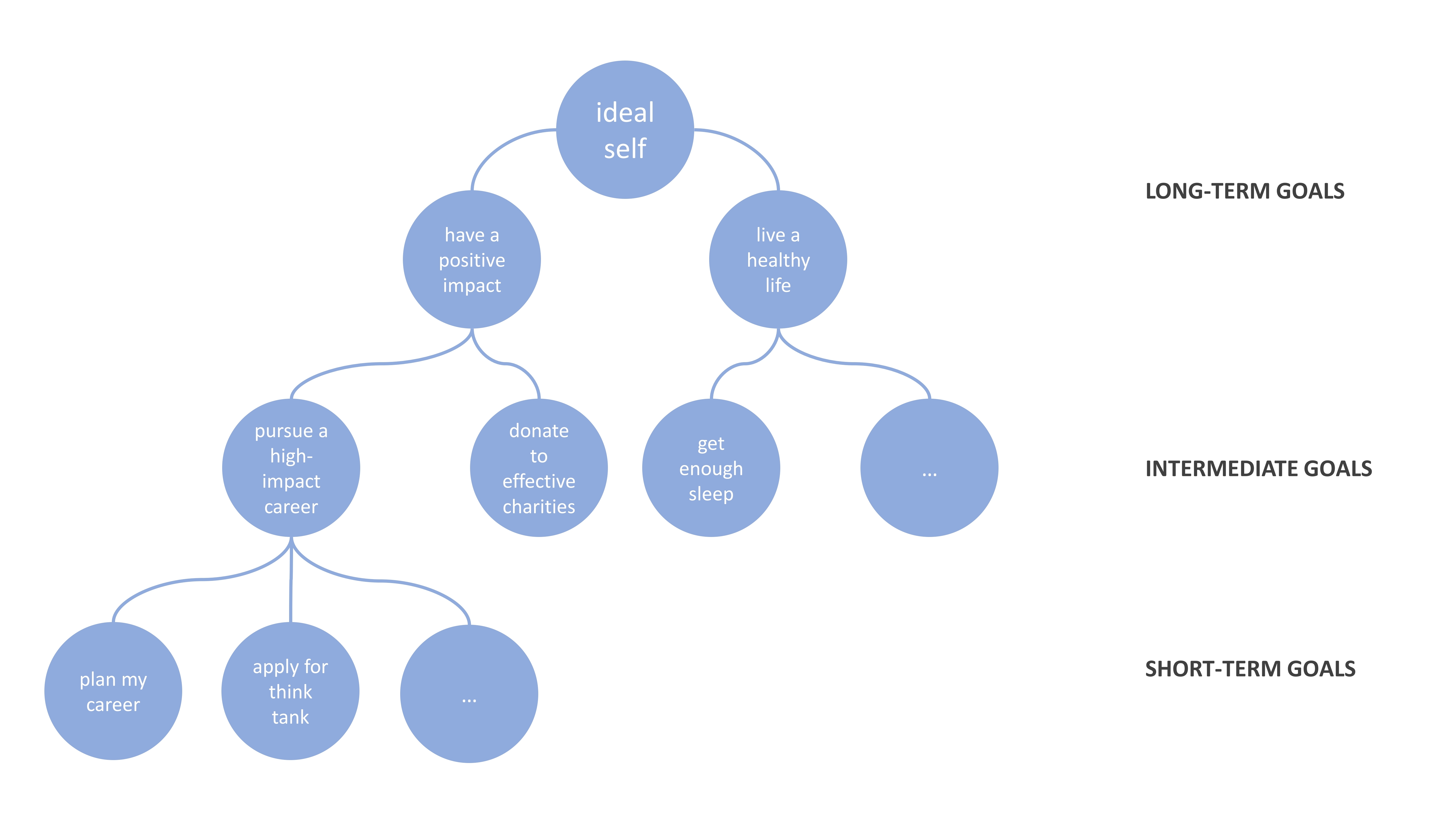
Goal hierarchy with three levels
In the effective goal-setting project, we investigate how people can set goals that make their lives more fulfilling, productive, and impactful. This includes thinking about how we can help people translate their values into goals and identifying which aspects of goals are decisive for successful goal pursuit. A large body of research supports the importance of goal-setting for motivation (e.g. Locke & Latham, 1990; Austin & Vancouver, 1996) and wellbeing (e.g., Sheldon & Elliot, 1999). Goal-setting is one of the pillars of effective living (Lieder, 2019). It sets the tone for any new personal project and guides behaviour throughout its pursuit (Cooper & Law, 2018).
In line with our REG’s mission, we strive to answer fundamental questions about goal-setting and develop practical tools that have a positive impact on people’s lives. We develop integrative theories of goal-setting and test them in online experiments. We translate the resulting insights into apps and strategies that boost people’s productivity and wellbeing (e.g., A digital companion for value-driven hierarchical goal-setting project). Both areas are symbiotic and are constantly informing each other. We believe that the combination of these two areas is a promising approach to the vibrant field of goal-setting.
Here are some research questions in which we have worked on or are currently interested in:
- Which characteristics of goals promote effective living and how can we measure them?
- What kinds of goal-setting strategies work best depending on the person and their circumstances?
- How can we help people construct a goal hierarchy that translates their values into actions?
If you are interested in participating in one of our goal-setting experiments, feel free to sign up for our mailing list:
- Goal-Setting: goal-setting-on@tuebingen.mpg.de
